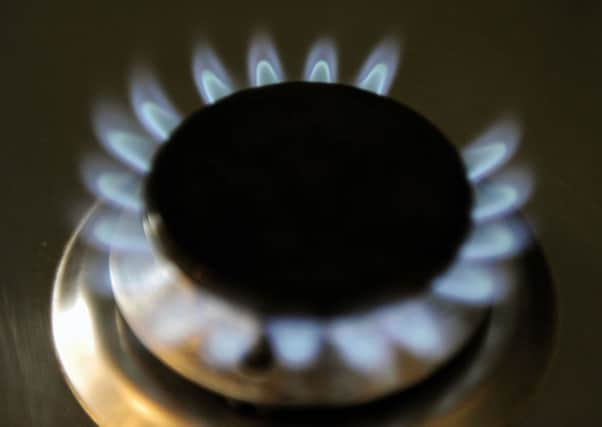Millions of pre-pay power users could see bills slashed


The Competition & Markets Authority (CMA) said British households could have been overpaying by around £1.7 billion a year and added that the “big six” providers have been taking existing customers – 70 per cent of whom are stuck on standard variable rate deals – for granted.
In its long-awaited report, the CMA said it wants to set a temporary price cap for low income and vulnerable customers who have pre-payment meters, and plans to launch an Ofgem-controlled database allowing rival suppliers to offer those on standard variable rates (SVRs) for three years or more better deals.
Advertisement
Hide AdAdvertisement
Hide AdThe CMA said too many customers were still on the most expensive default standard variable tariffs and could save more than £300 on average by switching.
Roger Witcomb, chairman of the CMA’s energy market investigation, said: “We have found that the six largest suppliers have learned to take many of their existing domestic customers – some 70 per cent of whom are on ‘default’ standard variable tariffs – for granted, not just over prices, but with their service and quality.”
He said the CMA’s report sets out a range of “bold, innovative” measures to improve competition in the energy market.
Those on pre-payment meters will see £300 million slashed off their bills in total each year – or around £80 to £90 each on average – under the regulator’s plans to protect them with a price cap until 2020.
Witcomb said: “Energy is both an essential and expensive item for many of these four million households, whose cheapest tariffs are around £300 more expensive than for other customers.”
He added the price cap will remain in place until 2020, by which time “they too will be able to benefit from our measures, and from other future developments like the roll-out of smart meters”.
One of the more controversial is the launch of a new customer database of so-called “disengaged customers”, opening them up to direct marketing by competing energy suppliers.
The CMA said this will be subject to “strict safeguards so that customers can opt out at any time and to ensure that communication meets strictly controlled criteria”.
Advertisement
Hide AdAdvertisement
Hide AdUK energy and climate change secretary Amber Rudd said the CMA’s proposals were a “wake-up call to the big six”.
She added: “Energy customers should get a fair deal from a market that works for them. That’s why we called for the biggest ever investigation into the energy market and won’t hesitate to take forward its recommendations.”
Scottish Gas owner Centrica disputed the CMA’s claims that customers have been overpaying by £1.7bn a year and said it believed the market was “very competitive”.
But it said: “Provided they are implemented thoughtfully, the majority of the CMA’s proposed remedies which seek to promote competition and drive innovation should further enhance competition and benefit our customers.”
Alistair Phillips-Davies, chief executive of Perth-based rival SSE, said the report was a “substantial package”.
“We will welcome remedies that benefit customers, work in practice and can be implemented pragmatically in this dynamic and changing retail market which is undergoing significant modernisation,” he said.
The CMA must deliver its final report by June 25.
Today’s proposals came as a study from market researcher GfK revealed that almost 15 per cent of homes switched energy supplier last year, up from 12 per cent in 2014. It found that the suppliers losing the most customers were all in the “big six”, with almost a third of households switching to smaller providers.
John Banerji, director at GfK, said: “Our consumer data tells us that satisfaction with energy companies is declining. Fewer than four in ten people would recommend their current provider. Only one in three customers feel valued, and for some suppliers up to 20 per cent cite poor service as a reason for leaving.
Advertisement
Hide AdAdvertisement
Hide Ad“If energy providers can tackle poor service and satisfaction levels, they have a chance to break the downward spiral of competing only on price, which, as we’ve seen, is impacting the big six the most.”
